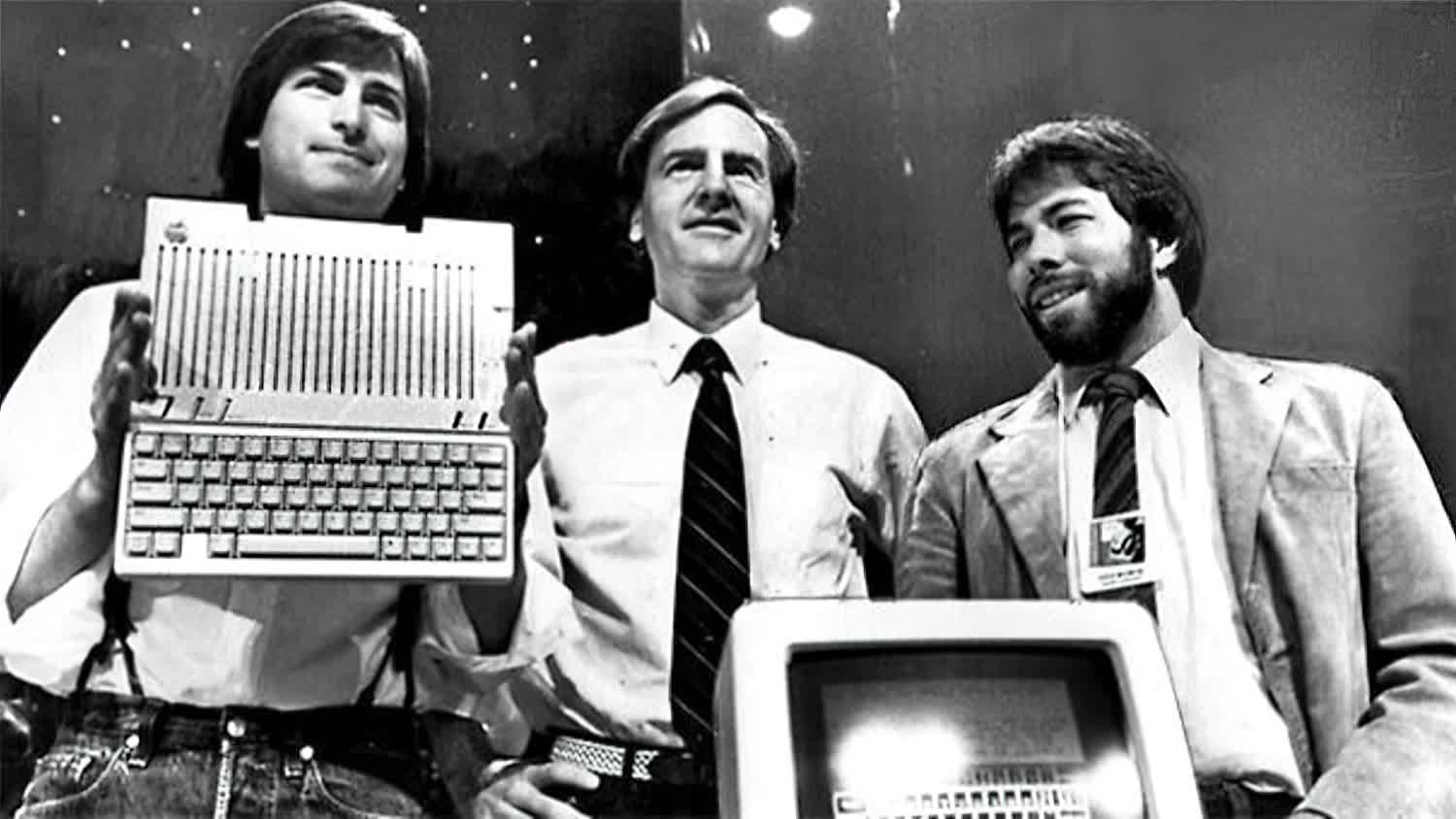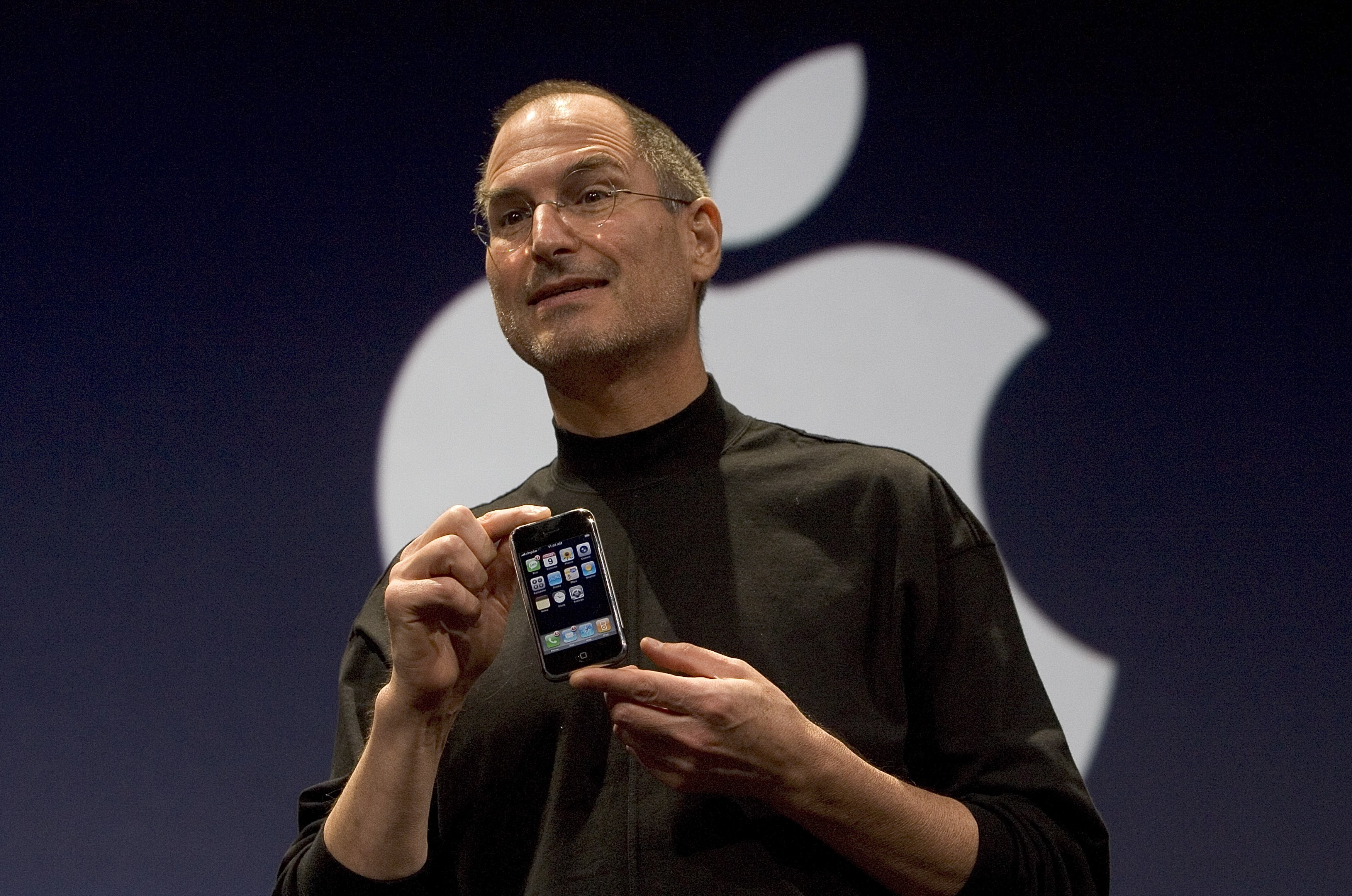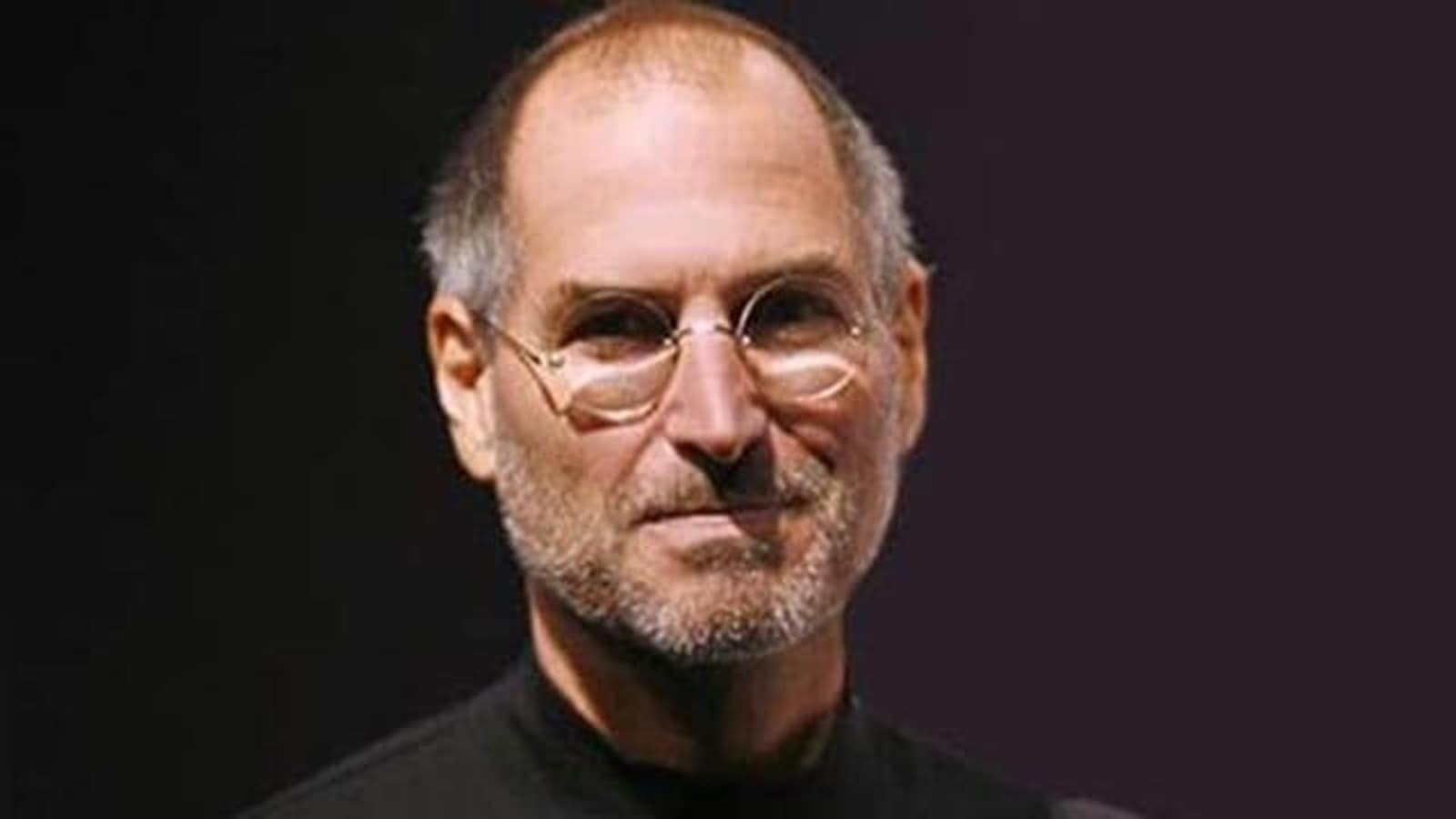How Much Did Steve Jobs Own Of Apple? Unpacking A Tech Icon's Stake
Have you ever stopped to wonder about the financial ties that bound Steve Jobs to Apple, the company he helped bring to life? It is that, for many, the story of Steve Jobs and Apple is a fascinating tale of innovation, ambition, and, at times, a rather dramatic journey. People often ask, "how much did Steve Jobs own of Apple?" It's a question that gets at the heart of his connection to the company, especially considering his various roles and departures over the years. We're talking about a person who left an incredible mark on how we use technology today, and his ownership stake is a piece of that bigger picture.
The idea of "much" when it comes to ownership can mean different things to different people, you know? My text tells us that "much" points to a great quantity, amount, or degree. So, when we talk about how much Steve Jobs owned, we're really looking at a large amount or a significant degree of ownership, or perhaps a far larger amount of something than one might expect. It's about figuring out if he held a lot, or just a little, of the company's shares at different times, and what that actually meant for him and for Apple, in a way.
This article will take a closer look at Steve Jobs' ownership journey with Apple, from the early days of its creation to his passing. We'll explore the different phases of his involvement and how his shareholdings changed, which is something many people find quite interesting. We'll also consider what "much" truly means in the context of his financial relationship with the company, and why this particular aspect of his life still captures people's attention, even today. So, let's get into the details, you know, about this remarkable story.
Table of Contents
- Steve Jobs: A Brief Biography
- The Early Days: Founding Apple and Initial Ownership
- The Exile and the Sale of Shares
- The Return and Rebuilding His Stake
- How Much Did Steve Jobs Own of Apple at the Time of His Passing?
- The Significance of His Ownership Beyond the Numbers
- Understanding the Term "Much" in Ownership
- Frequently Asked Questions About Steve Jobs and Apple Ownership
Steve Jobs: A Brief Biography
Steve Jobs was a truly pivotal figure in the world of technology, someone who helped shape how we interact with computers and devices every single day. Born in San Francisco, California, on February 24, 1955, he was adopted shortly after his birth. His early life involved a rather unique mix of counterculture influences and a deep interest in electronics, which, you know, set him on a particular path. He attended Reed College for a short time before dropping out, but he continued to audit classes, including a calligraphy course that he later said greatly influenced the design of Apple's early Macintosh computers, which is pretty cool.
His partnership with Steve Wozniak, a brilliant engineer, began in the mid-1970s. Together, they founded Apple Computer, Inc. in 1976, working out of Jobs' family garage. This was the start of something really big, arguably one of the most influential companies in history. Jobs had a vision for making technology accessible and beautiful, something that ordinary people could use in their homes and offices. His drive and focus on user experience were quite remarkable, and they truly set Apple apart, even back then, in a way.
Jobs' career at Apple had its ups and downs, including a period where he was forced out of the company in 1985. During his time away, he founded NeXT Inc., a computer platform development company, and also acquired Pixar Animation Studios, turning it into a hugely successful film studio. His return to Apple in 1997, initially as an advisor and then as interim CEO, marked a significant turning point for the struggling company. He then led Apple through a period of incredible innovation, introducing products like the iMac, iPod, iPhone, and iPad, fundamentally changing industries and our daily lives, as a matter of fact. He passed away on October 5, 2011, leaving behind a monumental legacy.
Personal Details and Bio Data of Steve Jobs
| Full Name | Steven Paul Jobs |
| Born | February 24, 1955 |
| Died | October 5, 2011 (aged 56) |
| Place of Birth | San Francisco, California, U.S. |
| Nationality | American |
| Education | Reed College (dropped out) |
| Known For | Co-founder of Apple Inc., CEO of NeXT Inc., Co-founder of Pixar Animation Studios |
| Spouse | Laurene Powell Jobs |
| Children | Lisa Brennan-Jobs, Reed Jobs, Erin Jobs, Eve Jobs |
The Early Days: Founding Apple and Initial Ownership
When Apple Computer, Inc. first came into being in 1976, it was a very different company than the global giant we know today. Steve Jobs, Steve Wozniak, and Ronald Wayne were the original founders. Initially, Ronald Wayne actually owned a 10% stake in the company, while Jobs and Wozniak each held 45%. This was the very beginning, a time when the company was just starting to take shape in a garage, you know, with big dreams but very little capital, really.
However, Ronald Wayne pulled out of the partnership just 12 days later, selling his 10% share back to Jobs and Wozniak for a mere $800. This decision, in hindsight, is often talked about as one of the most expensive mistakes in business history. So, after Wayne's departure, the ownership structure shifted, leaving Jobs and Wozniak as the primary stakeholders. They were the ones taking the biggest risks and putting in the tireless work to get Apple off the ground, which is pretty much how it goes with startups, isn't it?
As Apple grew and attracted its first major investor, Mike Markkula, the ownership percentages began to change again. When Apple officially incorporated in 1977, the ownership was restructured. Jobs and Wozniak each received a significant portion of the company's stock, but not necessarily a majority, as other investors and employees also received shares. This is a typical step for a startup that is getting serious about growth and bringing in outside money. So, while Jobs was a co-founder and a major shareholder, he didn't, for example, hold 100% of the company, or even close to it, even in those very early days, in some respects.
The Exile and the Sale of Shares
The mid-1980s brought a particularly difficult period for Steve Jobs and Apple. After a series of disagreements with the company's board and CEO John Sculley, Jobs was essentially pushed out of the company he helped create in 1985. This was a very public and rather painful separation for him. At this point, he still held a considerable number of shares, but his direct influence over Apple's operations was gone. It was a moment that, you know, really shaped his path for the next decade.
Following his departure, Jobs decided to sell almost all of his Apple stock. He kept only one share, which he later said was to ensure he would continue to receive the annual report. This was a pretty dramatic move, signaling a complete break from the company. He then went on to found NeXT Inc., a computer company focused on higher education and business markets, and he also purchased a controlling stake in what would become Pixar Animation Studios from George Lucas. So, for a significant period, his ownership of Apple was practically non-existent, which is a fact many people forget, as a matter of fact.
The sale of his shares meant that for over a decade, Steve Jobs had virtually no financial stake in Apple. This period saw Apple struggle, facing fierce competition and declining market share. Meanwhile, Jobs was busy building other successful ventures, showing his incredible drive and vision even outside of Apple. It's a testament to his character that he could leave such a significant part of his life behind and start anew, twice, you know, with such determination, too. This phase is crucial for understanding the overall trajectory of his ownership, or lack thereof, during a key time for Apple.
The Return and Rebuilding His Stake
Steve Jobs' return to Apple in 1997 was nothing short of a dramatic comeback. Apple was in deep trouble, losing money and market share rapidly. The company acquired NeXT Inc., the company Jobs founded, primarily for its operating system technology, which would become the foundation for macOS. As part of this acquisition, Jobs rejoined Apple, initially as an informal advisor to CEO Gil Amelio. This was a rather tentative beginning, but it quickly escalated, you know, into something much bigger.
When Gil Amelio was ousted, Jobs stepped in as interim CEO, famously taking a symbolic salary of $1 per year. He didn't initially receive a large grant of stock upon his return, at least not in the traditional sense. His compensation structure was different. In 2000, when he officially became permanent CEO, he was awarded a significant stock option package, which allowed him to purchase a large number of shares at a set price. This was a common way for companies to incentivize executives to improve performance, and it certainly worked with Jobs, who, you know, turned Apple around in an incredible way.
Over the years, as Apple's fortunes soared under his leadership, the value of these stock options and any subsequent grants grew enormously. While he was CEO, Jobs did not receive a large salary, often keeping it at $1, but his compensation came primarily through these stock options and restricted stock units (RSUs). These gave him the right to acquire Apple shares, and as the company's stock price climbed, his personal wealth, tied to Apple, increased significantly. So, he rebuilt his stake, not necessarily through buying shares on the open market, but through compensation packages tied to his performance, which is pretty typical for top executives, really.
How Much Did Steve Jobs Own of Apple at the Time of His Passing?
When Steve Jobs passed away in October 2011, his ownership stake in Apple was a topic of considerable interest. It's important to remember that his primary source of wealth was not his Apple shares directly, but rather his shares in The Walt Disney Company, which he received when Disney acquired Pixar in 2006. That deal made him Disney's largest individual shareholder, with about 7.4% of Disney's stock, a truly massive holding. His Apple shares, however, were still significant, just not his largest asset, you know.
At the time of his death, Steve Jobs owned approximately 5.5 million shares of Apple stock. This figure, while a large number in absolute terms, represented a relatively small percentage of the company's total outstanding shares. It was less than 1% of Apple's stock, specifically around 0.6% to 0.7%. This might seem like a small amount for the co-founder and CEO who orchestrated Apple's incredible resurgence. However, it was still worth billions of dollars due to Apple's soaring market capitalization, which is pretty amazing, as a matter of fact.
The reason his percentage was relatively low, despite the high value, goes back to a few things. First, as mentioned, he sold almost all his shares when he left in 1985. Second, when he returned, his compensation was structured through options and grants rather than a massive initial equity stake. Third, Apple had issued many more shares over the years through various means, diluting the percentage of individual shareholders. So, while 5.5 million shares is a lot in terms of raw numbers, it was a modest percentage of the entire company, particularly compared to his Disney holdings, which is something to consider, you know.
The Significance of His Ownership Beyond the Numbers
While the exact percentage of shares Steve Jobs owned at the time of his passing might seem small to some, it's really important to look beyond just the raw numbers. His influence on Apple was never primarily about the size of his equity stake. It was about his vision, his leadership, his relentless pursuit of perfection, and his ability to inspire people, which, you know, is something you can't really quantify with shares. He was the driving force behind Apple's most iconic products and its unique corporate culture, honestly.
Even with less than 1% of the company's shares, Jobs held immense power and sway within Apple. His authority came from his unparalleled track record of innovation, his reputation, and the deep trust he had built with consumers and employees alike. He was the face of Apple, the person who stood on stage and introduced groundbreaking products. This kind of influence often matters far more than simply holding a majority of shares, especially in a company where a strong, singular vision is key. It's almost like his ownership was more about his spirit than just the stock, in a way.
His ownership, even if a small percentage, also represented a direct financial alignment with the company's success. When Apple did well, his personal wealth grew, creating a strong incentive for him to continue pushing the boundaries of what was possible. So, while he wasn't the majority owner, his stake was substantial enough to keep him deeply invested, both emotionally and financially, in Apple's future. This direct connection, you know, really helped fuel the company's remarkable growth, which is a big part of the story, as a matter of fact.
Understanding the Term "Much" in Ownership
When we ask "how much did Steve Jobs own of Apple," the word "much" can actually mean a few different things, and it's worth thinking about that. My text points out that "much" can mean "great in quantity, amount, extent, or degree." So, if you don't get much sleep, you don't get a lot. In the context of ownership, this means we're trying to figure out if his stake was a large amount, or a significant degree of control, or perhaps a far larger amount than someone else. It's not just about the numbers, but what those numbers represent, in some respects.
For example, in terms of sheer dollar value, his Apple shares at the time of his passing were worth billions, which is, by any definition, a "much" or "a lot" of money. This is a large amount of something, a truly significant sum. So, in that sense, he owned "much" of Apple's value, even if it wasn't a huge percentage of the total shares. The value of the company itself had grown so incredibly large, that even a small piece was worth a fortune, you know, which is often the case with successful tech companies.
However, if "much" refers to control or a majority stake, then Steve Jobs did not own "much" of Apple in that sense, at least not in his later years. He never held a majority of the shares, meaning he couldn't unilaterally make decisions based solely on his stock ownership. His power came from his position as CEO, his charisma, and his vision, rather than from simply outvoting other shareholders. So, the meaning of "much" really depends on the angle you're looking from, which is something to consider, isn't it?
Frequently Asked Questions About Steve Jobs and Apple Ownership
Q1: What was Steve Jobs' net worth at the time of his passing?
At the time of his passing in October 2011, Steve Jobs' net worth was estimated to be around $10.2 billion. This figure was largely due to his significant stake in The Walt Disney Company, which he acquired when Disney purchased Pixar Animation Studios in 2006. He was Disney's largest individual shareholder, holding approximately 7.4% of their stock. His Apple shares, while valuable, made up a smaller portion of his overall wealth, which, you know, is a detail many people might not realize, as a matter of fact.
Q2: Did Steve Jobs ever own a majority of Apple?
No, Steve Jobs never owned a majority of Apple's stock. Even in the very early days, after Ronald Wayne's departure, Jobs and Steve Wozniak split the remaining shares, and as the company grew and brought in outside investors, their individual percentages naturally decreased. After his return to Apple in 1997, his compensation was primarily through stock options and grants, which resulted in him holding a significant number of shares, but never more than a small percentage of the total outstanding stock. So, he wasn't a majority owner, which is pretty clear, you know.
Q3: Who inherited Steve Jobs' Apple shares and his wealth?
Steve Jobs' substantial wealth, including his Apple shares and his much larger stake in Disney, was inherited by his wife, Laurene Powell Jobs, and their children. Laurene Powell Jobs manages the assets through various trusts and foundations, continuing a legacy of philanthropy and investment. She has, you know, become a prominent figure in her own right, using the inherited wealth to support various causes and ventures, which is pretty common for such significant estates, really. Learn more about Apple's journey on our site, and link to this page Explore other tech pioneers here.

Who were the 3 founders of Apple? Steve Jobs, Steve Wozniak, and?

Steve Jobs Considered Building Apple Car in 2008 | TIME

Apple co-founder Steve Jobs' old sandals auctioned for this ‘record